Defeating Depression & Attacking Anxiety!
12:52
The pace at which your heart usually beats has accelerated at lightening speed and the rhythm is rather irregular, the tightness forming in your chest becomes to feel as though an elephant is sitting on it. You feel hot yet cold at the same time and are sweating, you begin to experience pins and needles in your extremities and/or they’re throbbing. You have lost focus and all sense of realism by this point and the walls have started closing in. Claustrophobic, you realise a boa constrictor has a vice grip around your neck. Tight throat, dry mouth, struggling for air of which just won’t come, you panic even more, scared, feeling light headed and as though you’re going to faint, “Am I going to die? Am I having a heart attack?” Everything around you has faded in the absence of concentration yet your senses are on high alert. Everything is so loud and fast, smells are much more pungent and everything that you can feel is much more substantial. All the while, abhorrent thoughts are penetrating every new notion. Telling yourself that you’re a freak, weak, pathetic, an embarrassment and failure, “Why can’t I just be normal? Why am I so broken?”
This is more common than you probably think but is so frightening, disabling and lonely. Does this sound like you or somebody you love? If so then please read on to hopefully feel that you aren’t alone, pick up some new coping tricks or to learn about this and how to effectively help somebody who is feeling this way. Don’t disregard this as nothing – it could very well happen to you or a loved one someday. Actually, it most likely will.
So, depression, anxiety, panic attacks, OCD, bipolar and a whole host of other mental health illnesses are experienced daily by one third of the whole population, if not more. Already having an incredibly disabling mental health disorder it’s needless to say that the stigma of which is still attached to them is not helpful in the slightest for anyone, nor is people’s ignorance, lack of compassion or plain cruelty. This isn’t intended to be a negative post however, it’s ‘Motivational Monday’ after all, my aim instead is to highlight and raise awareness to some of these issues , specifically anxiety, panic attacks and depression. I hope to promote positivity and mindfulness for all whilst attempting to deliver an uplifting message of support, care and compassion to all of those whom suffer from an ‘invisible illness’.
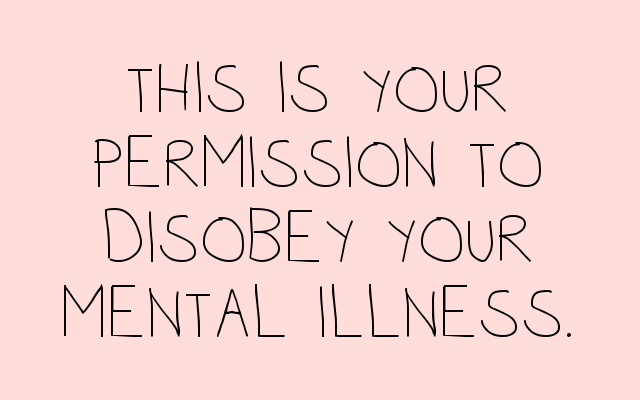
Anxiety and panic attacks – what are they?
We all experience anxiety at some point, it’s natural. The first day of a new school, job, at job interviews or even during the dream wedding. There’s a very sizable difference however, between typical anxiety and that of an actual anxiety disorder. So what is that difference? Standard anxiety is when we may feel a little nervous about a particular event, we may get a flutter or what is often referred to as ‘butterflies’ but then it will typically go away and we’ll forget all about the moment. This can even happen for things that we’re excited about! An anxiety disorder is extremely different. These feelings of anxiety and nervousness will last for a lot longer and can often be over something that seems completely irrational, something that the average person wouldn’t give a second thought to. The anxiety can get so bad that it results in panic attacks, breakdowns and the onset of depression. Living with anxiety can be incredibly debilitating and damaging for a person – often other’s won’t even know that there’s something wrong with the sufferer, we develop a very thick shell and can become actors of Oscar worthy proportions in order to cover up what we’re feeling on the inside. We may do this for a number of reasons including being embarrassed or scared of what we’re feeling, feeling ashamed of ourselves or simply not wanting to burden other’s with what is going on in our heads – it’s hard enough for us to deal with, we would never wish to make another person feel the same way. Additionally, whilst the perception of the ignorant is that we’re seeking attention or validation of some sort, when in reality it’s so far from the truth as we tend to not like the attention, we already feel like a failure, we don’t need another person to worry about us, making us feel worse. We don’t want to be a delicate flower in the wind which needs protecting – contrary to belief we are incredibly strong people as we deal with a constant battle inside of us day in and day out, hiding this from other’s and dealing with things alone. Many people never seek help although they should. We don’t want the attention.
We all experience anxiety at some point, it’s natural. The first day of a new school, job, at job interviews or even during the dream wedding. There’s a very sizable difference however, between typical anxiety and that of an actual anxiety disorder. So what is that difference? Standard anxiety is when we may feel a little nervous about a particular event, we may get a flutter or what is often referred to as ‘butterflies’ but then it will typically go away and we’ll forget all about the moment. This can even happen for things that we’re excited about! An anxiety disorder is extremely different. These feelings of anxiety and nervousness will last for a lot longer and can often be over something that seems completely irrational, something that the average person wouldn’t give a second thought to. The anxiety can get so bad that it results in panic attacks, breakdowns and the onset of depression. Living with anxiety can be incredibly debilitating and damaging for a person – often other’s won’t even know that there’s something wrong with the sufferer, we develop a very thick shell and can become actors of Oscar worthy proportions in order to cover up what we’re feeling on the inside. We may do this for a number of reasons including being embarrassed or scared of what we’re feeling, feeling ashamed of ourselves or simply not wanting to burden other’s with what is going on in our heads – it’s hard enough for us to deal with, we would never wish to make another person feel the same way. Additionally, whilst the perception of the ignorant is that we’re seeking attention or validation of some sort, when in reality it’s so far from the truth as we tend to not like the attention, we already feel like a failure, we don’t need another person to worry about us, making us feel worse. We don’t want to be a delicate flower in the wind which needs protecting – contrary to belief we are incredibly strong people as we deal with a constant battle inside of us day in and day out, hiding this from other’s and dealing with things alone. Many people never seek help although they should. We don’t want the attention.
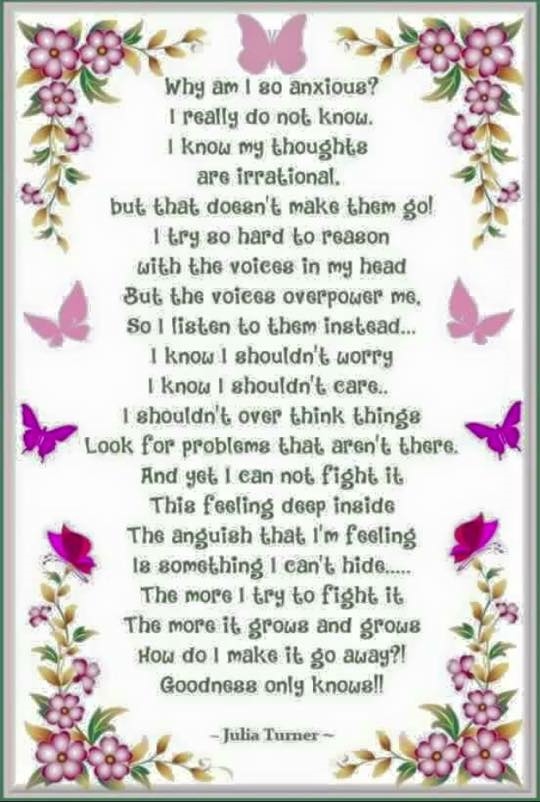
How do you know if a person is suffering from anxiety? It can be really hard to discover this in a person, especially if they’ve become fantastic with the craft of acting. You may even have a notion that you suffer from anxiety yourself but haven’t addressed it fully or had a GP diagnosis. There are different types of anxiety disorder, with seemingly the most common being GAD (Generalized Anxiety Disorder) or SAD (Social Anxiety Disorder), bearing this in mind there are some slight differentiations with the characteristics and such, however here are some signs that a person MIGHT be suffering from an anxiety disorder:
- Fatigue and problems sleeping such as insomnia, sleeping late and disturbances in sleep
- Racing and irrational thoughts
- Inability to calm down or relax
- Phobias
- Worrying about performance in certain things such as your job or a speech, worrying about what people may think or be saying about you
- Continually judging yourself and feeling like a failure
- Feeling irritable often
- Mind going blank
- Feeling restless
- A lack of concentration and inability to focus
- Feeling tense, worried, on edge and jumpy
- Obsessive and continuing self doubt, lack of self esteem
- Flashbacks to a non-obvious traumatic event such as presentations or public humiliation (traumas such as a crash/accident/injury/death are associated with PTSD, which is Post Traumatic Stress Disorder)
- Perfectionism and OCD
- Muscle tension/aches and pains
- Stomachache and nausea
- Stomach and bowl problems such as IBS (Irritable Bowel Syndrome), often anxiety can trigger the onset of IBS
- Headaches and migraines
- More frequent urination and the sudden need to urinate
- Back and shoulder pain
- Clear physical indicators such as sweating and shaking/trembling, passing out or of course panic attacks
If you’re a parent reading this and are worried about your child, as teenagers of course have a lot of change going on in their time of life and can be susceptible to developing mental illness, then you may want to read the following link. It has a little information on the signs someone may be suffering from an anxiety disorder and also what you can do to help, there are many ways in which a person can help of course and things to avoid. The following article may sum it up a little better than I can, also it can be applied to any age – not just teens!
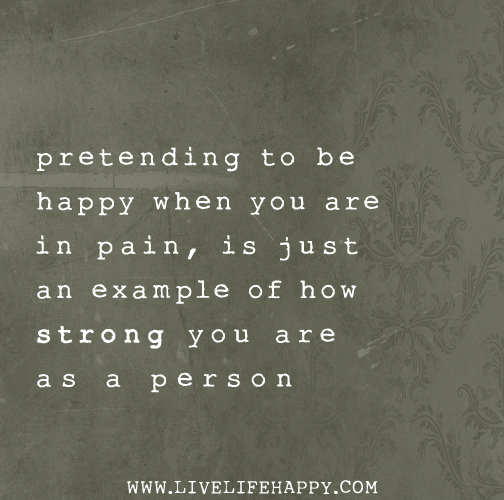
Now, panic attacks. Sometimes a person can experience a panic attack once or twice and it not having to mean that they have anxiety – however if you find you’re having frequent panic attacks and have had many then that’s a monumental sign that you are suffering from an anxiety disorder. Likewise, when experiencing an anxiety attack you may not actually realise that’s what it is, as they can vary between mild to severe. With a mild attack you may be experiencing heart palpitations, your mind may wander during conversations and go blank, you may be over thinking things and maybe experience tremors and such. A mild attack typically isn’t as detectable and you may not realise you’re even having one. A severe attack is a combination of many of the typical symptoms and will often leave you feeling extremely weak, fatigued and drained both mentally and physically. A panic attack is the body’s response to danger and fear, known as ‘fight or flight’. It’s the release of adrenaline and your heart beating faster which causes an attack, certain triggers can sometimes stimulate an attack although it’s different for every sufferer. It’s not that you are weak, it just happens that our bodies are a little more sensitive to stress than other people and actually, it shows how strong we are to overcome these time and time and time again! The opening scenario to this post sums up an attack although there can be many other symptoms and again it’s different for every individual. With that said, some symptoms of an attack can include:
- Feeling thirsty and having a dry mouth
- A choking sensation, restriction in your throat/tight neck
- The feeling of having a lump in the throat or making a croaking noise
- Difficulty breathing, with short rapid breaths – this can cause hyperventilation
- Racing heart and an irregular heartbeat/palpitations
- The walls can feel as though they’re caving in on you
- Feeling as though you’re detached or things aren’t real
- Inability to focus and lack of concentration
- Shaking/trembling
- Sweating
- Feeling hot and cold at the same time
- Feeling faint
- Fatigued and extremely worn out
- Irritable and agitated
- Feeling sick/nauseous
- Tingling mostly in the extremities/pins and needles and/or throbbing
- Headache
- Feeling very scared
- Feeling as though your heart is going to give in and worrying you could die
- Incredibly emotional and feeling irrational/stupid
- All senses are heightened
- Clear distress
- Tensed muscles
So what triggers an attack then? This could honestly be anything! I hate to say this but again, it’s different for everybody. Sometimes there may be nothing at all to trigger an attack other than the build up of stress from suffering from an anxiety disorder in the first place, this can be in our genetics or a person may simply find it harder to deal with stress. Often many things can build up on a person, they have what seems the whole weight of the world on their shoulders and one day that line will be crossed and they’ll snap and voila, a panic attack appears. Some people may have specific triggers too and this can differ vastly dependent on which type of anxiety disorder they have in the first place. A list of possible triggers could include but aren’t limited to:
- Flying and other transport such as a taxi, bus, coach, train
- Crowds, this could include shopping centres, music festivals, gigs
- Parties or pubs, places where people are drunk or using substances
- If you use alcohol, nicotine or other substances yourself
- Being in the spotlight, giving a presentation, a speech or having to be on a stage
- Something that links to a past trauma or even a past panic attack
- Particular people, this could be how they behave, how they treat you etc
- Types of conflict or dispute
- A thought or flashback
- The build up of stress or being upset
- Feeling stuck somewhere for a long time
- The sense of time and running out of it
- Being put under pressure and people’s expectations
- The feeling of having no control
- Having to explain things to others (such as your anxiety) and needing to stand up for yourself, when by the way – you shouldn’t have to!
- Other people’s moods and them being stressed out or negative
- Too many noises all at once or people rushing around
- Lack of exercise or eating too much junk food
- Beating yourself up about things and having a lack of self esteem
- Having to go somewhere or do something that terrifies you
- Phobias – this could be literally anything
- Changes – again, this can be so many things
- Other health issues, it doesn’t have to be anxiety related – instead it could be an overactive thyroid gland, cardiac problems, low blood sugar and of course stimulant abuse or withdrawal from such
- Sleep deprivation
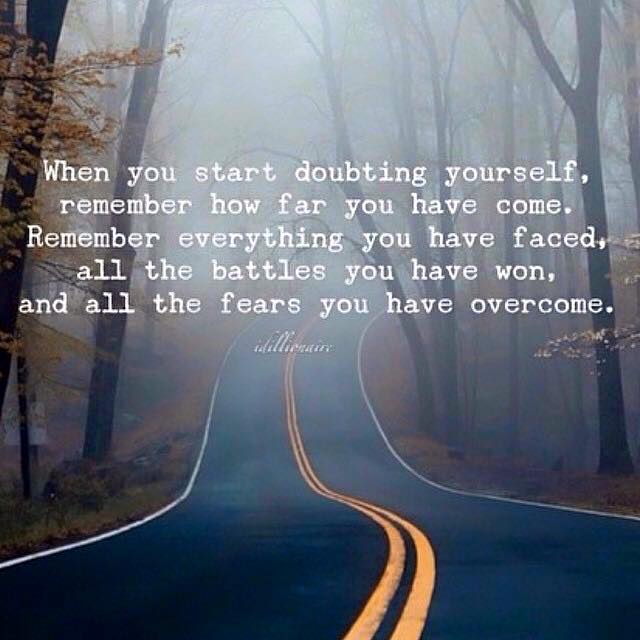
Anxiety and Panic Attacks – How you can help
For the most part, we have to deal with our issues alone as nothing nobody ever does will be enough to magically heal us – so don’t be offended if you try too hard with someone and it makes zero difference. Our healing needs to be within and come mainly from ourselves. There are plenty of things you can do to help somebody suffering from anxiety and/or panic attacks though and I implore that everybody takes this on board, we never know what is going on in a person’s head – therefore always be mindful and never dump additional problems on another, strive to uplift one another always, we’re all on the same journey of survival. P.S, Did you know that helping others actually makes you feel better about yourself? Great, huh?!
For the most part, we have to deal with our issues alone as nothing nobody ever does will be enough to magically heal us – so don’t be offended if you try too hard with someone and it makes zero difference. Our healing needs to be within and come mainly from ourselves. There are plenty of things you can do to help somebody suffering from anxiety and/or panic attacks though and I implore that everybody takes this on board, we never know what is going on in a person’s head – therefore always be mindful and never dump additional problems on another, strive to uplift one another always, we’re all on the same journey of survival. P.S, Did you know that helping others actually makes you feel better about yourself? Great, huh?!
During a panic attack, do:
Firstly, get them somewhere quiet away from other people. Stay with the sufferer and reassure them that you’re there for them but that they aren’t being a burden – they’re what’s important now. You may wish to remind them that any one attack can only last for 20 minutes (although of course they could happen to suffer from multiple attacks one after the other – but don’t mention this at any cost!), some find that being reminded that it will all be over soon is a helpful way to calm down a little. If they’re finding it particularly hard to breathe then remind them of a breathing technique they may often use, if you don’t know what they usually do then assume it’s to breathe deeply and slowly, in through the mouth and out through the nose. Once breathing is going back to normal it will help other symptoms to dissipate. If they’re feeling faint then get them sitting down, the last thing anybody wants is for them to actually pass out and hit their head on something. Keep everybody else away from the sufferer – the last thing they want is a whole crowd of people around them, that will make things a hundred times worse! They may want some water – but they’ll likely tell you if that’s the case, anyway.
Firstly, get them somewhere quiet away from other people. Stay with the sufferer and reassure them that you’re there for them but that they aren’t being a burden – they’re what’s important now. You may wish to remind them that any one attack can only last for 20 minutes (although of course they could happen to suffer from multiple attacks one after the other – but don’t mention this at any cost!), some find that being reminded that it will all be over soon is a helpful way to calm down a little. If they’re finding it particularly hard to breathe then remind them of a breathing technique they may often use, if you don’t know what they usually do then assume it’s to breathe deeply and slowly, in through the mouth and out through the nose. Once breathing is going back to normal it will help other symptoms to dissipate. If they’re feeling faint then get them sitting down, the last thing anybody wants is for them to actually pass out and hit their head on something. Keep everybody else away from the sufferer – the last thing they want is a whole crowd of people around them, that will make things a hundred times worse! They may want some water – but they’ll likely tell you if that’s the case, anyway.
Please don’t:
Don’t keep talking all of the time, their senses are already hightened and they’re scared, they don’t want to know about your day, what you had for lunch and what Great Aunt Florence’s best friend’s Granddaughter has just named her 5th child. Distractions only serve to irritate them and panic them more, it will seem as though you’re trying too hard – which they’ll then feel they’ve made you feel uncomfortable causing them to panic more. Don’t look bored either, or show clear signs of worry and distress, as of course this also worries them, we don’t like to think that we’re causing problems for anybody else or putting them out, which is why if you’re going to stay with them during the attack then you must make sure you make them your priority and are willing to stay with them until it’s over. Asking constant questions goes hand in hand with talking too much, just don’t do it. You’re probably feeling uncomfortable, useless or scared yourself, particularly if you’re not used to this kind of thing or don’t know what’s happening – this isn’t the time to ask questions though. If they want something then they’ll let you know, until then regard yourself as mostly company. Don’t take the piss and make fun of them – they’re most likely already worrying about what other people are thinking about them, of course again, making them feel much worse. Saying things such as they’re being irrational or overreacting is included with this. Never do that.
Don’t keep talking all of the time, their senses are already hightened and they’re scared, they don’t want to know about your day, what you had for lunch and what Great Aunt Florence’s best friend’s Granddaughter has just named her 5th child. Distractions only serve to irritate them and panic them more, it will seem as though you’re trying too hard – which they’ll then feel they’ve made you feel uncomfortable causing them to panic more. Don’t look bored either, or show clear signs of worry and distress, as of course this also worries them, we don’t like to think that we’re causing problems for anybody else or putting them out, which is why if you’re going to stay with them during the attack then you must make sure you make them your priority and are willing to stay with them until it’s over. Asking constant questions goes hand in hand with talking too much, just don’t do it. You’re probably feeling uncomfortable, useless or scared yourself, particularly if you’re not used to this kind of thing or don’t know what’s happening – this isn’t the time to ask questions though. If they want something then they’ll let you know, until then regard yourself as mostly company. Don’t take the piss and make fun of them – they’re most likely already worrying about what other people are thinking about them, of course again, making them feel much worse. Saying things such as they’re being irrational or overreacting is included with this. Never do that.
For the sufferer, what should you do when having a panic attack?
If it’s a certain situation causing you discomfort and stress then first and foremost take yourself out of there, it’s best to get yourself somewhere empty and quiet anyway as this will help to calm you quicker. Even if you feel you’re about to have a panic attack, this can still be done, it may help to prevent it happening. If you’re feeling faint then get sat down to prevent the risk of falling and hitting your head, head injuries aren’t something of which you want adding to your list of worries! Remember to breathe and focus on doing so – once you have your breathing under control it will alleviate the rest of your symptoms. You need to be taking deep and slow breaths, a few seconds pause between breathing in and out may also help. If you have a paper bag to hand then using this to breathe in and out of may help to stabilise the levels of oxygen and carbon dioxide in your system. Some people like to focus on certain things in the room in an attempt to bring a little more realism to the situation, if you’re going to do this then I suggest only focus on one thing at a time and slowly introduce something else – if you think of too many things at once when your mind is already racing then it will make you freak out more. Have any sounds shut off if you can and again be somewhere that nobody else is, you may want somebody with you for support and companionship but I’d suggest having just the one person, any more and it will be over stimulating. If you’re in an open outdoor space then looking up to the sky may help you to not feel so clostrophobic and prove to relax you a little, the same could be said for if you happen to be by a beach as the ocean can be very calming for most people. As you learn more about how you experience your panic attacks you will of course learn what the best approach is for you as an individual – if you have any other tips and tricks to try out then please do feel free to leave them in the comments below.
If it’s a certain situation causing you discomfort and stress then first and foremost take yourself out of there, it’s best to get yourself somewhere empty and quiet anyway as this will help to calm you quicker. Even if you feel you’re about to have a panic attack, this can still be done, it may help to prevent it happening. If you’re feeling faint then get sat down to prevent the risk of falling and hitting your head, head injuries aren’t something of which you want adding to your list of worries! Remember to breathe and focus on doing so – once you have your breathing under control it will alleviate the rest of your symptoms. You need to be taking deep and slow breaths, a few seconds pause between breathing in and out may also help. If you have a paper bag to hand then using this to breathe in and out of may help to stabilise the levels of oxygen and carbon dioxide in your system. Some people like to focus on certain things in the room in an attempt to bring a little more realism to the situation, if you’re going to do this then I suggest only focus on one thing at a time and slowly introduce something else – if you think of too many things at once when your mind is already racing then it will make you freak out more. Have any sounds shut off if you can and again be somewhere that nobody else is, you may want somebody with you for support and companionship but I’d suggest having just the one person, any more and it will be over stimulating. If you’re in an open outdoor space then looking up to the sky may help you to not feel so clostrophobic and prove to relax you a little, the same could be said for if you happen to be by a beach as the ocean can be very calming for most people. As you learn more about how you experience your panic attacks you will of course learn what the best approach is for you as an individual – if you have any other tips and tricks to try out then please do feel free to leave them in the comments below.
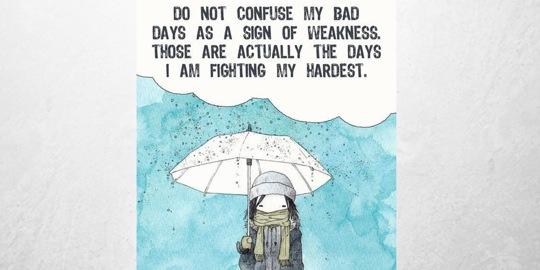
The Dirty Word – Depression
Everybody tends to assume that a person gets depression because they’re a negative person, this is so far from the truth it’s unreal. You could be the happiest, most content person alive with the utmost of positive dispositions, everything could be going as near to perfect as is possible for you – yet you could still get depression. Depression effects so many of us, many will eventually seek help from their GP although this tends to be the last thing they want to do therefore they may suffer in silence for a very long time beforehand, some people may choose to suffer in silence continually. It’s extremely hard to open up about, it’s always had such a negative stigma attached to it and often people are wrongly judged due to having the illness. Some say the stigma is lessening although I don’t share this same view. Every day people are badly judged, avoided or simply find themselves the recipient of hate and wrong doings from ignorant people who don’t understand in the slightest. The best way of moving towards help for depression (and other health issues regardless of being mental or physical) is to be aware of it and to understand it. It’s very hard understanding something as complex as this, especially if you’ve never experienced it before yourself. Even for those of which suffer from depression it can be incredibly hard as everyone suffers in different ways, we’re all a different person after all, help and treatments that work for one may be useless for another and vice versa, it can be very confusing especially when it seemingly comes from nowhere and for no apparent reason.
There are myths, the first of these being that you have to be a negative person to get depression, or experience some horrific event in your life. Whilst a negative disposition will never help when suffering depression – that doesn’t have to be a reason, also someone as I said, with a seemingly ‘perfect’ life could also find themselves with the illness. Depression can be genetic, it can also be susceptible of ‘triggers’ and life events, the build up of stress or it could simply be a chemical imbalance in the brain! It’s baffling because someone suffering from depression could still have the most positive of dispositions, they could have long periods of genuine happiness and contentment. If you have a loved one with the illness then the best thing to do is to learn more about how it specifically effects them and their personal experience of the illness. Of course they may not want to share this information, in which case you need to simply accept this and under no circumstance, pressure or push them into letting you in! Additionally, a person could experience this for a different length of time to another, whilst some may get depression and can get it treated they may find it gets better and goes away, others may not be so lucky and could be life long victims of the cruel mind games it plays.
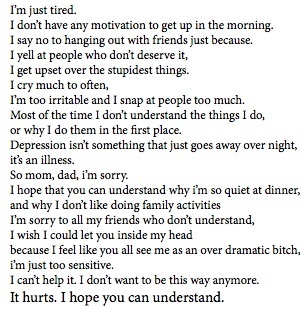
The above picture says things very well in my opinion, there are so many more things that could be added however. Depression is an extremely debilitating illness, which effects so very many of us. Left untreated, or sometimes even when treated, it’s an all encompassing feeling which takes hold of your whole body. You’ll likely feel aches and pains more, experience other bodily ailments such as stomachaches, nausea, headaches and migraines; there’s many similarities with that of anxiety, actually. You will likely find yourself bored a lot of the time, as your interest in any type of activity diminishes, including that of your favourite hobbies. You will have no interest in anything, any more. Typically you may try to push people away to spare them of the sadness of which is engulfing you, it’s normally accompanied with extreme cases of self-doubt and all forms of self-abhorrence, too. Simple everyday tasks will become the hardest, getting out of bed a mountainous hurdle, self care seemingly pointless, the world will be passing by at lightening speed whilst you wallow in what appears to be an eternal abyss of loathing, destruction and sadness. It will profoundly effect sleeping, finding it impossible to get to sleep, when you do finally drop off it will likely be disturbed and you’re more likely to experience nightmares yet you still will not want to wake up in the morning – because even the nighttime terrors are a welcome distraction from your waking thoughts. You’ll cry out of nowhere and for no specific reason, your emotions on high alert and erratic, you may find that you become aggressive towards others as your irritations increase considerably. Appetite is effected, either you will have a lack of this or could find yourself binging on food for comfort. A rise in alcohol and other substance abuse may occur, as you search for something, anything, that may take away the pain. You avoid people all together and like with anxiety, the chance of developing agoraphobia grows. You will feel as though you can’t cope, unable to see any light at the end of the tunnel, you’ll beat yourself up for it and blame yourself for how you’re feeling. It’s a lonely place but you’ll no longer care as the numbness creeps in and before long you feel nothing, you aren’t alive – merely existing. You’ll likely wish you were someone else, or nobody at all, cursing the fact you were ever born, wishing a trap door could open and execute you there and then, you’ll likely feel suicidal – many people will act on this and attempt to take their own life. Depression isn’t a nice place to be, it’s also not at the fault of the person affected. Their whole personality may seem to change right in front of you – this too isn’t their fault. Once depression sets in it controls the mind, who you once were is no longer there any more, not whilst inhabited by this dark, destructive and demeaning demon. It’s very hard to help a person suffering depression, yet there are an endless amount of things people constantly do in which proves to escalate the torture.
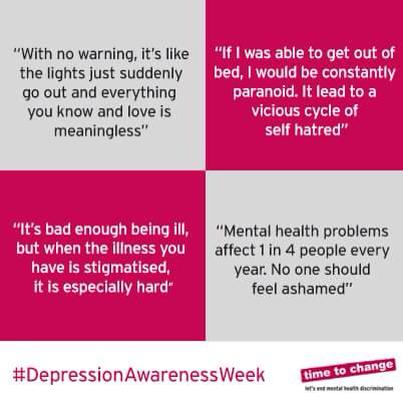
Very often there’s a link between different mental health illnesses and disorders, most notably between anxiety and depression, each making the other worse also, which obviously isn’t helpful in the slightest. Symptoms will frequently overlap or some can contradict against one another, making it additionally difficult for the sufferer to collect their thoughts or to get suitable help and treatment. Everybody is different and will experience these issues differently, no two illnesses will be the same therefore because of this it’s of serious importance to learn as much as is possible about the illness and how the person deals with it personally, how it effects them, what works well and what doesn’t. Below are some things to bare in mind if you know somebody affected by any of the above.
- They’re more likely to put other people’s needs before their own, with this in mind make sure you don’t add more responsibilities to their pile, offload all of your own problems or pressure them with unrealistic deadlines and tasks.
- They’re very scared and feel alone, be a friend to them! Show them you aren’t going anywhere, they’re probably already used to pushing people away.
- Don’t discuss their information with other people, it’s disrespectful and will really hurt them when they find out, and the truth always surfaces in the end. Likewise, don’t talk about them behind their back and poke fun at them. If you have nothing nice to say, then say nothing at all. You wouldn’t like to be judged, we should be judging nobody – it’s none of our business what is happening in the lives of another. We have our own to focus on.
- Be approachable and understanding, always. Practice empathy. They don’t want your sympathy or pity, they just want someone they can trust in which they can talk to now and then, be that person and be supportive.
- Never tell them they’re being irrational or too sensitive, they already know they’re a sensitive soul, telling them this as though it’s a bad thing is never going to help anybody and can be seriously damaging.
- Be mindful of your own mood, if you are stressed or angry this will imprint on other people around you, nobody else regardless of their suffering or lack of, should have to deal with another person’s mood swings and negativity.
- Alike to putting on pressure, don’t have any expectations. If you’re meeting a friend and they’re taking longer or don’t want to meet until later in the day – this could be because they’re finding simple every day tasks hard, people with mental health issues often need ample space and time to do things, it takes us longer for a number of reasons. Rushing us or nagging us to do something will increase stress considerably.
- A special shout out for managers, be always open and ready to listen to them, don’t disregard what they’re saying to you or judge them, furthermore never talk about them behind their back to other staff or share their personal information. In actual fact, I’m pretty sure that the sharing of information in the workplace would be against some form of Data Protection law! If a person has needed time to themselves following a breakdown of any sorts and has gained approval in the form of a sick note from their GP, what you must do is respect that! The last thing they want is to find out that their so called ‘work friends’ are judging them and speaking badly of them, this makes a person feel a hundred times worse, completely hinders their recovery and makes it infinitely harder upon return to work. It doesn’t help you, either. This person will lose every last bit of respect for the staff, the management and the workplace as a whole – do you think that you’ll get a high level of work from them when this happens, do you think they’ll have pride in their job? No. The joke is on you. With regard to this, colleagues: for once just try not talking about somebody behind their back, you are there to work and nothing more. Practice professionalism. Do you not have your own lives to be concerned with? I suggest a positive hobby.
- If they find a glimmer of hope and are pushing forward with plans to improve or change something, have a little faith in their abilities. Don’t just write them off as a no hope or failure – they can do that very well themselves, thank you very much. Have a little faith in them as a person, if they can constantly battle their own mind then they can do anything they set their mind to!
Conclusively, show you care, practice empathy and compassion, give them your time and undivided attention, strive to learn more about them as a person as well as gaining knowledge on their illness. Be a friend, a real, genuine one. Provide them with time and space when needed. Do fun things with them in the hope it may shine a little light on them, show them the beauty of life. Build them up and have faith in them, trust in them. Stand by their side, don’t walk away when it gets tough – accept the negative with the positive. Treat them like a real, normal human. They aren’t a China doll and don’t wish to be looked on in this way. They’re a little more sensitive than what is deemed as a ‘normal’ person, this doesn’t mean that they aren’t incredibly strong – because they damn well are. Wrapping them in cotton wool will smother them and take away their independence and control further. Let them lead you, if they want something from you they will say, especially if you ensure you’re the most approachable as is possible. Have an open mind and above all, don’t get annoyed if your efforts make no difference to their illness. They can’t help feeling the way they do, they really wish that they could be like everybody else, doing the things they once loved, not living in fear of a dark shadow, a phobia or a crippling attack of panic. If you would like to learn more I will provide some links for further reading at the bottom of this post. Before that…..

Self Help!
It’s well known that the only person who can truly help, is yourself. An infinite amount of people could be there to help you but if you aren’t willing to put in some effort yourself then I’m sorry to say it, but you won’t be going anywhere, there will be no changes. I’m sure you want to feel genuinely happy again, that you’re bored of always putting on a brave face and pretending to be this jolly, happy soul of which is always making other people laugh. I’ve no idea what you will be going through right now because it’s different for us all, although I’d like to provide you with a few things to do, a little self help – including but not limited to:
It’s well known that the only person who can truly help, is yourself. An infinite amount of people could be there to help you but if you aren’t willing to put in some effort yourself then I’m sorry to say it, but you won’t be going anywhere, there will be no changes. I’m sure you want to feel genuinely happy again, that you’re bored of always putting on a brave face and pretending to be this jolly, happy soul of which is always making other people laugh. I’ve no idea what you will be going through right now because it’s different for us all, although I’d like to provide you with a few things to do, a little self help – including but not limited to:
- Giving yourself time out to relax, doing something purely for yourself with no interruptions or interference from others.
- Learn more about your own mental health, research until you’re blue in the face, the more you know about how your mind is working, the more likely you are to be able to accept it for what it is. Once you accept yourself, you’ve achieved one of the largest parts of the battle.
- You have to put yourself first sometimes before everyone else. For selfless people I know this is incredibly hard, but think of it this way – you’re no use to anybody else if you aren’t coping yourself.
- If you’re worried about a specific event such as returning to school or work, then try planning something fun to do afterwards, this should hopefully take the edge off and will give you something exciting to focus on and look forward to.
- Look after your body, this includes your diet, activity and sleep! If you can’t sleep, then at least relax as this still rests us at least a little. Developing a sleeping pattern will make it easier both getting to sleep and getting a good quality of sleep, when we feel well rested it can dramatically improve how we’re feeling emotionally because of the chemicals in our brain. The same applies for activity and diet. Put goodness into your body and you will get goodness coming back out. Strive to balance the chemicals and they will thank you for it.
- Additionally to looking after your body, ensure you get at least 10 – 15 minutes of sunlight a day, getting some Vitamin D into ourselves isn’t a bad thing, just be sure to cover up in high temperatures using a hat, shades and of course not forgetting sun lotion with the appropriate protection level.
- Many swear by meditation, this is widely used as a relaxation tool and is encouraged for people suffering any demons in their minds. I have yet to master this one therefore can’t give any tips however, Google is your friend. There’s endless information out there!
- If something specific is troubling you, such as a job – then strive to fix it and if it can’t be fixed then get rid! There’s no space in life for negativity. You are not a tree, you are not rooted to the spot. Get up and do something.
- Get help, either talking to a trusted family member or friend, joining an online forum full of strangers, or seeking help from your GP. If you find your GP to be unhelpful, continue by trying out different GP’s until you eventually find one who is a good match. He may suggest counselling or medication and will help you to find what suits you best. This is pretty trial and error at first.
- Quit smoking, drinking or taking drugs. These are all depressors and will make you feel infinitely worse.
- Don’t feel the need to explain yourself to others, I know how incredibly hard this is but unfortunately we can’t train the plain ignorant. If the person genuinely cares about you then they’ll listen and learn free from judgement, if not then they aren’t worth your time or energy. These people will get a very nasty shock when it happens to either them or someone they love – mental illness is much more common than people care to think. People often hide it from others due to fear of the stigma attached and people’s reactions, so many people are left out of statistics.
- If people don’t understand it, this doesn’t mean it’s any less real or debilitating.
Please whatever you do, try your utmost to love and care for yourself. You are worthy, you are brave, couragous and strong. You have already got through so much and you can get through this. Don’t blame yourself for something that is out of your control. You are no less of a person merely due to your health. Become your own best friend, build yourself up and fill yourself with confidence. When a little less consumed by it all, you could try building on your confidence with something such as an acting class. That may sound incredibly terrfiying but think of it this way – it’s a moment in which you really are pretending to be somebody completely different, this will give some form of relief with escapism, also this grows a person’s confidence so much more. Taking yourself out of your comfort zone and trying new things will always make you feel a sense of pride. What is there to lose?

If you would like to read more into any of this then there are some links provided below which may be of some use, I’ve previously read a book titled Black Rainbow, it’s a true and personal account of depression written by a lady named Rachel Kelly. This is a very insightful book for both sufferers and non-sufferers alike, whilst it may not pertain directly to everybody it’s still a very interesting read with some added poetry which may be of interest to some. I’m sorry this post has been so long but it’s a matter of high importance, I want everybody to know that you CAN fight this and you CAN be happy again, you WILL go places you want to and accept opportunities. Nothing can last forever and this too shall pass. Every new day is a new beginning, a brand new chance to start again. Please don’t suffer in silence, we could all use a little help sometimes, or somewhere to simply offload. If you’re more comfortable writing in a journal to start with, then do that but please do reach out as some point. You aren’t alone. Be bold, be brave, go out there and show the world what you’re made of.
http://www.mind.org.uk/
http://www.helpguide.org/articles/anxiety/panic-attacks-and-panic-disorders.htm#causes
http://www.nhs.uk/Conditions/Depression/Pages/Introduction.aspx
http://www.goodhousekeeping.co.uk/health/health-advice/6-warning-signs-your-teenager-might-have-anxiety?utm_content=buffer6e3c4&utm_medium=social&utm_source=facebook.com&utm_campaign=buffer
http://www.helpguide.org/articles/anxiety/panic-attacks-and-panic-disorders.htm#causes
http://www.nhs.uk/Conditions/Depression/Pages/Introduction.aspx
http://www.goodhousekeeping.co.uk/health/health-advice/6-warning-signs-your-teenager-might-have-anxiety?utm_content=buffer6e3c4&utm_medium=social&utm_source=facebook.com&utm_campaign=buffer
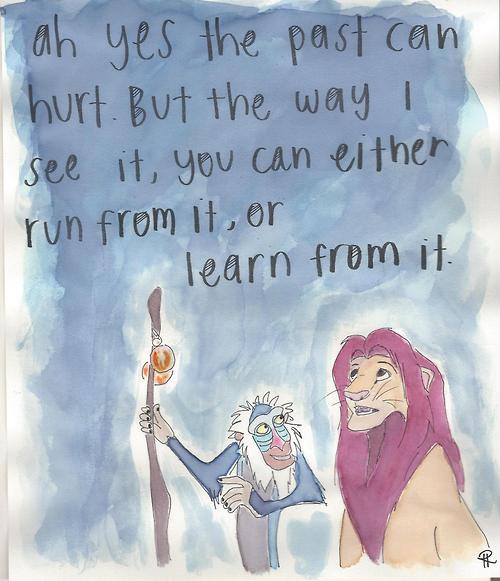
I hope this has helped even one person in some way or helped to raise awareness and understanding within society, if it has then a like or leaving a comment would please me to no end. This has been an incredibly deep post and one of which I weren’t sure I were going to even share, so if you would like to see more like this or something specific stood out for you then I would be delighted to know about it.
With Love,
Disaster Davis x
Disaster Davis x
(Original Post on WordPress)



0 comments
Lets Chat!